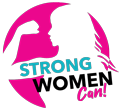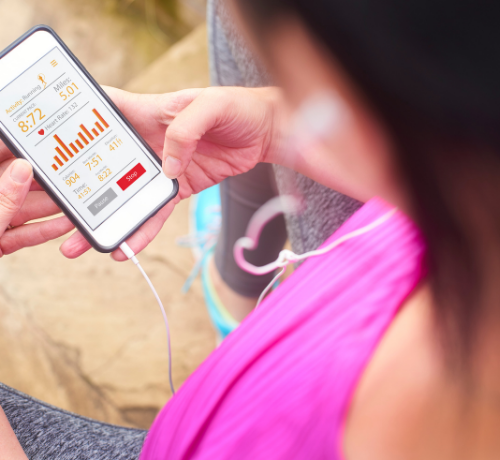Want a healthy lifestyle but don’t know how to measure it?
Tracking ‘health’ is the easiest way to save time, save money and build confidence.
Why?
Because tracking gives you unbiased feedback and tells you whether your strategy (or the strategy someone else has given you) is actually working.
Some people rely on personal trainers or health coaches to track their metrics, but some things need to be done at home.
Here are some of the most fundamental metrics we use to track women’s health. We recommend you start here.
No 1: Sleep
The most underrated and natural health commodity. Whether you want to get stronger, lose weight, increase energy levels or improve performance, sleep is a keystone metric. Research shows that we should be getting 7-8hours per night. Less than 7hours sleep per night increases the body’s stress response, propensity to put on weight, sugar cravings and mood swings. Sleep deprivation is also a real willpower killer, so creating new habits becomes much harder.
Tip: Keep your bedtime and wake-up time the same each day so that your body clock adapts. This will improve your sleep and ensure you get your requisite 7-8hours.
No 2: Your Menstrual Cycle
Your cycle can provide a lot of insight into your health. PMS, blood flow and even your symptoms between bleeds give clues about your stress levels, hormone health and gut health. Tracking your cycle is also a great way to set your training expectations. You are strongest during your ovulation phase, so you can really push hard in training and maximise your gains. In the second half of your cycle, you will experience some of your weaker days, so be kind to your body, back off your training intensity, and rest more.
Tip: you can track your cycles and relevant symptoms in a diary or smart phone app. Common apps include Garmin, Fitbit, Apple/Samsung health app, Clue
No 3. Stress
Stress is probably the biggest contributor to poor health in modern society. Most women aren’t aware of a constant underlying low-level stress which causes numerous health implications that eventually surface as weight gain, over eating, skin conditions, adrenal fatigue, feelings of anxiety or depression, and low self-esteem.
Being consciously aware of your stress levels is vital for physical health, mental health, performance and maintaining relationships.
Tip: Track your stress through a single daily habit that enables you to ‘check in’ with yourself physically and mentally, for example, breathwork, meditation or journaling.
No 4. Muscle Tension
Our body is constantly giving us clues about our health. And one of the easiest clues to pick up on is muscle tension. Tightness in the body is typically a result of physical stress that has not fully recovered yet, or mental/emotional stress that generally builds up in the shoulders, back and neck.
Tip: Foam rolling and trigger ball release work is an easy way to self-assess muscle tension and understand where your body ‘holds’ stress. It’s also a great way to release the stress!
No 5. Training
Exercise is obviously an important metric for health. But what specifically should you track? This will depend on your goals.
For performance, you will want to track the numbers eg. How much are you lifting or how fast are you running.
For lifestyle goals, you might just track your activity or your time spent sitting at a desk eg. 30 minutes of exercise a day, or move for 5 minutes every hour of sitting.
Tip: track your workouts and compare them to the metric that you want to see improve eg. Muscle gain, fat loss, energy. This will ensure that your training is consistent, and your training methods are effective!
No 6. Nutrition
Nutrition plays an integral part in pretty much all health goals. Yet people are constantly surprised at their eating habits once they start tracking them. Which is why we run regular nutrition courses to help our members learn how to track it.
If you want to be fitter and healthy, make sure you are aware of your food intake and know what you are aiming for.
Tip: use a handwritten diary or an app like myfitnesspal. Track portion size and macros to start with. Forget the calories. They mean nothing if you are not hitting your macros for good health.
***************
For more tips around women’s health and fitness, sign up to our Newsletter below and follow us on socials.
Facebook: https://www.facebook.com/strongwomencanau
Instagram: @strong_women_can
Join our closed Facebook Community: https://www.facebook.com/groups/strongwomencan



